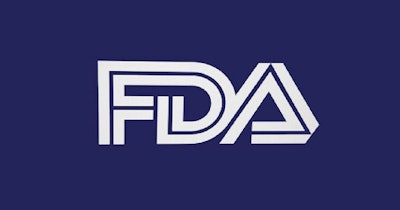
Up until now, the U.S. Food and Drug Administration (FDA) generally has not enforced applicable federal requirements with respect to most laboratory developed tests (LDTs).
Beyond May 6, however, the FDA will consider in vitro diagnostic (IVD) products to be "devices" under the Federal Food, Drug, and Cosmetic Act (FD&C Act), including when the manufacturer of the IVD is a laboratory. The FDA announced its final rule April 29, also saying that it will adopt targeted enforcement discretion for several categories of IVD LDTs manufactured by labs. Furthermore, LDTs will begin facing FDA quality system (QS) requirements.
The bottom line, according to the FDA, is that following a four-year phaseout period, the FDA will no longer take a general enforcement discretion approach with LDTs. However, during the phaseout period, the FDA could choose to pursue enforcement action for violations at any time.
"We focus mainly on certain broad disease categories associated with the majority of misdiagnosis-related harms in the United States," a preview of the final rule stated.
"Many LDTs are used more widely, for a larger and more diverse population, with large laboratories accepting specimens from across the country," said the FDA, adding that LDTs are used widely, from newborn screening and cancer risk prediction to diagnosing heart disease and Alzheimer’s. LDTs also increasingly rely on high-tech instrumentation and software, are performed in large volumes, and are now used more frequently to help guide critical healthcare decisions.
CLEP gets nod
Helpful for some LDT manufacturers might be that the FDA, at this time, believes generally that the New York State Department of Health's Clinical Laboratory Evaluation Program's (CLEP) review of analytical and clinical validity of LDTs helps to mitigate risks of harm from inaccurate and unreliable LDTs; thus, the FDA would likely not enforce premarket review requirements for tests approved under CLEP and its tiered evaluation policy.
"However, if an LDT has its conditional approval withdrawn by NYS (e.g., because approval is denied after NYS CLEP completes the full technical review), the LDT would no longer be under this enforcement discretion policy as it would neither have conditional approval nor full approval." Much more is provided for CLEP in the final rule, which will be published in the Federal Register May 6 but can be previewed prior to that date.
A snippet of the 528-page document called out that many current LDTs are manufactured by laboratory corporations that market the IVDs nationwide, as they accept specimens from patients across the country and run their LDTs in very large volumes in a single laboratory. In addition, these tests are often manufactured using instruments or components not legally marketed for clinical use, and the tests are used to inform critical treatment decisions more often than they were in the past.
"By phasing out the general enforcement discretion approach for LDTs, FDA is correcting the imbalance in its oversight between nonlaboratory and laboratory IVD manufacturer," according to the massive document. "FDA looks for different types of errors and applies a different analysis [than CLIA, the Clinical Laboratory Improvement Amendments]."
In its announcement, the FDA said it intends to exercise enforcement discretion with regard to premarket review and most quality system requirements for certain categories of IVDs, including but not limited to currently marketed IVDs offered as LDTs that were first marketed prior to the date of issuance of the final rule, and LDTs manufactured and performed by a laboratory integrated within a healthcare system to meet an unmet need of patients receiving care within the same healthcare system when an FDA-authorized test is not available.
No IDEs a problem
A key error by LDT manufacturers, according to language in the final rule, is that laboratories have at times been conducting IVD clinical investigations without complying with FDA requirements. This includes the requirement to submit an investigational device exemption (IDE) application for FDA review before beginning studies involving “significant risk” IVDs. When this occurs, people may be enrolled in medical studies that lack key protections. Analytical validation could also be questionable.
Good news for some
The news isn't all bad, depending on what an LDT has going for it. Many existing LDTs will fall outside the scope of the FDA's enforcement.
"These tests might include, for example, immunohistochemistry tests that involve no automated preparation or interpretation, but would not include, for example, lateral flow tests, as they do not generally rely on laboratory personnel expertise," the final rule preview stated. Another example might be some organ transplantation tests. Another would be LDTs manufactured and performed within U.S. Department of Defense (DoD) or Veterans Health Administration (VHA), and more guidance may be issued.
"Better assuring the safety and effectiveness of LDTs may also foster test innovation and facilitate the collective efforts of the scientific and medical communities to identify promising technologies, new therapies or areas worthy of future research," the FDA stated in the document.
Read or download the full document here.



















